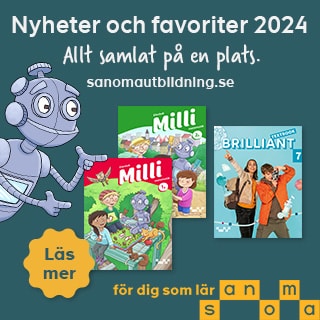Historia för yrkesprogrammen. Innehåll och betydelse i policy och praktik
Bilden av historieämnet är mångfacetterad, och det finns olika föreställningar om vad som är viktigast och vad ämnet ska bidra med, visar forskaren Kristina Ledman i sin avhandling.
– Det finns en diskurs om att eleverna på yrkesprogram är ganska ointresserade av teoretiska ämnen, och gymnasiereformen bygger mycket på idén att för mycket teoretiska ämnen i yrkesutbildning leder till avhopp. Men det var absolut inte det eleverna sa, säger hon.
Kristina Ledman
Anna Larsson, Maria Rönnlund, Carina Rönnqvist
Jan Löfström, Helsingfors universitet
Umeå universitet
2015-03-13
Historia för yrkesprogrammen. Innehåll och betydelse i policy och praktik
History for vocational education and training: Content and meaning in policy and practice
Institutionen för idé- och samhällsstudier
History for vocational education and training: Content and meaning in policy and practice
This thesis offers critical perspectives on a history syllabus for vocational education and training (VET) tracks in Swedish upper secondary schools and adds to our knowledge and understanding of the educative function of history education for the individual and for society. The overall aim of this thesis is to critically investigate discourses that are voiced in different fields about the construction and reproduction of the history curriculum in VET tracks. A general question
addressed is how vertical (critical and theoretical) and horizontal knowledge is articulated by the discourses in terms of the meaning of history in a VET context. The following four research questions were the focus of the four different studies in this thesis: How were non-vocational subjects discussed on a policy level during the post-war period, and what meanings were ascribed to history education? What aspects of history as a field of knowledge are recontextualised into a pedagogic discourse for the VET curriculum? How do teachers perceive the history syllabus? What do the students express concerning the history syllabus and history education? The results of these studies are reported in separate papers, and the aggregated results are analysed in this
thesis. The data consisted of government bills and committee reports, material from the National Agency of Education archives, and interview data gathered through interviews with 5 teachers and 46 students. The major theoretical inspiration comes from Basil Bernstein whose theories of classification and framing, pedagogic discourse, pedagogic code, and vertical and horizontal discourses are used in the analysis. With the aid of these concepts, the content and meaning of history education for VET are connected to macro levels of education, and the way in which education reproduces social order when certain forms of knowledge are distributed to different groups in society is discussed. Three major conclusions are drawn. First, history as a pedagogic discourse comes forward as versatile and contradictory when the results from the studies are aggregated. There is, however, a shared understanding that the meaning of history in VET is to educate the students to become democratic and active citizens. Secondly, the investigated discourses ascribe history education with the potential to distribute critical and powerful knowledge. The students see a value for history education in their future as citizens and for giving them access the public conversation of society. A final conclusion is that the pedagogic code, embedded in the history curriculum, can be interpreted in two different ways. The
emphasis on competencies and the focus on the last two hundred years can be interpreted as (A) an expression of a wish for immediate utility and thus an instrumental view of education or (B) the recontextualisation of scientific theories, concepts, and practices into a pedagogic discourse as a means to give students access to disciplinary (powerful) knowledge.
Relaterade länkar

Undervisa i artificiell intelligens
 Gy–Vux
Gy–Vux 







